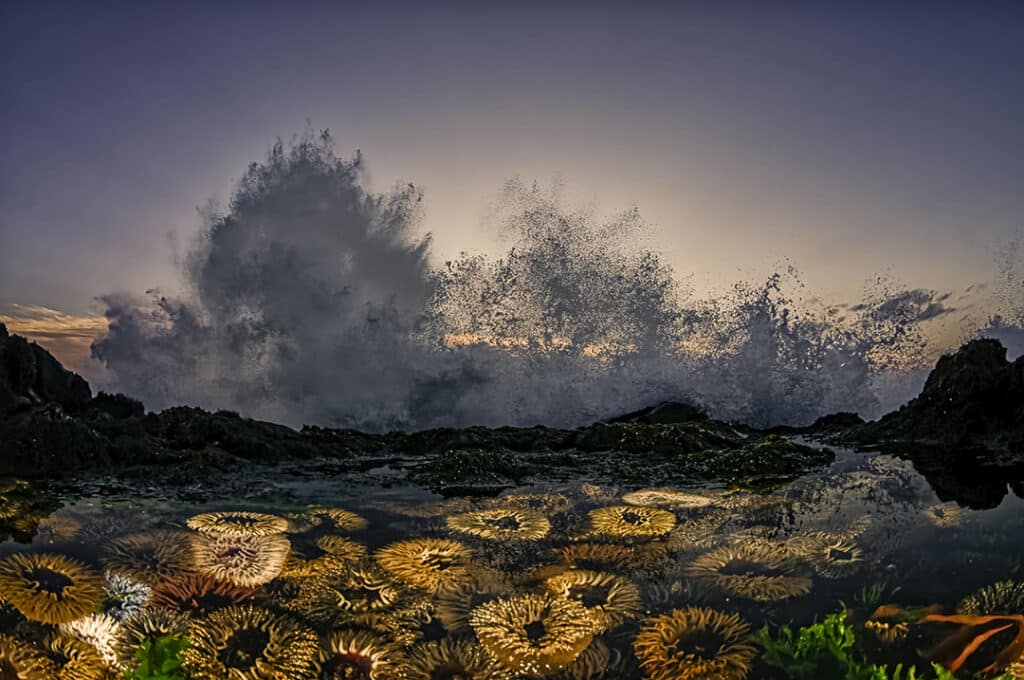
1. 2024 Ocean Decade Conference Identifies Priorities for Remainder of Ocean Decade
Major initiatives have been undertaken to improve the Ocean’s health. One of these is the UN Decade for Ocean Science for Sustainable Development (2021-2030) (“Ocean Decade”), which aims to bring together ocean stakeholders globally to ensure ocean science supports countries in achieving Sustainable Development Goal (SDG) 14 (life below water). The 2024 Ocean Decade Conference took place from 10–12 April 2024.
The primary Conference outcome was the Barcelona Statement, which identifies three priorities: ocean knowledge and science generation to inform management decisions; improved infrastructure, including marine pollution monitoring and ocean observations; and cross-cutting issues such as co-designing initiatives and embracing all knowledge systems. Participants provided input into ten draft white papers. The white papers identify future priorities for the Ocean Decade to generate knowledge on science-based solutions to biodiversity conservation, climate change, food security, a sustainable ocean economy, pollution, and natural hazards.
Thank you for your generous gift that will help us continue the production of this weekly, free publication
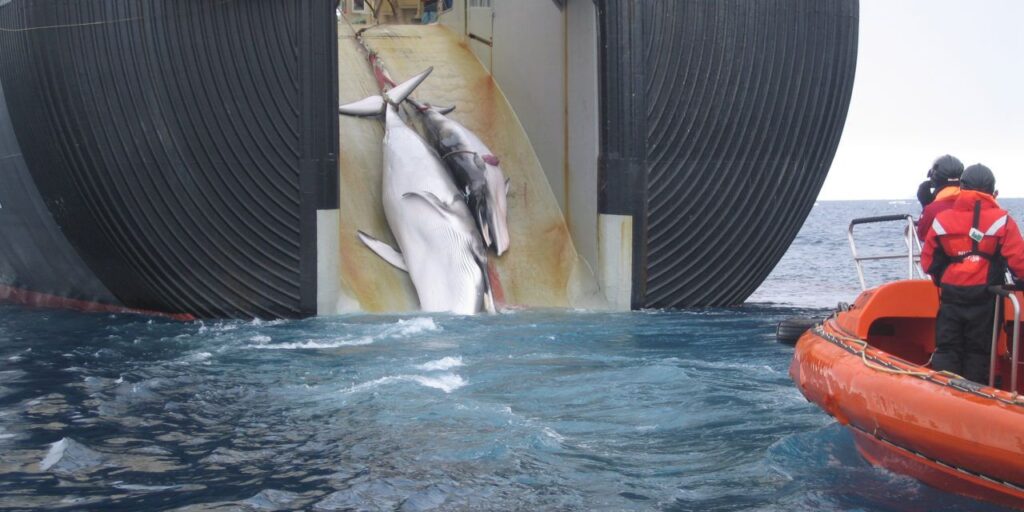
2. Kangei Maru – Japan’s New Whaling Mother Ship
The Japanese whaling industry has gained more capacity with the launch of Kangei Maru, a new whaling mother ship that can process tons of whale meat at sea. The efficiency of this new vessel presents substantial challenges to whale populations. This could hint at Japan’s commitment to expanding whaling in its waters and probably beyond the Southern Ocean.
Kangei Maru is scheduled to leave its home port of Shimonoseki for an eight-month maiden voyage off the northeast coast of Japan. However, the government has set a catch limit of 379 whales this year within Japan’s EEZ, including a cap of 167 for minke whales, 187 for Bryde’s, and 25 for Sei whales. In 2019, Japan withdrew its membership from the International Whaling Commission, the global body that regulates whaling.
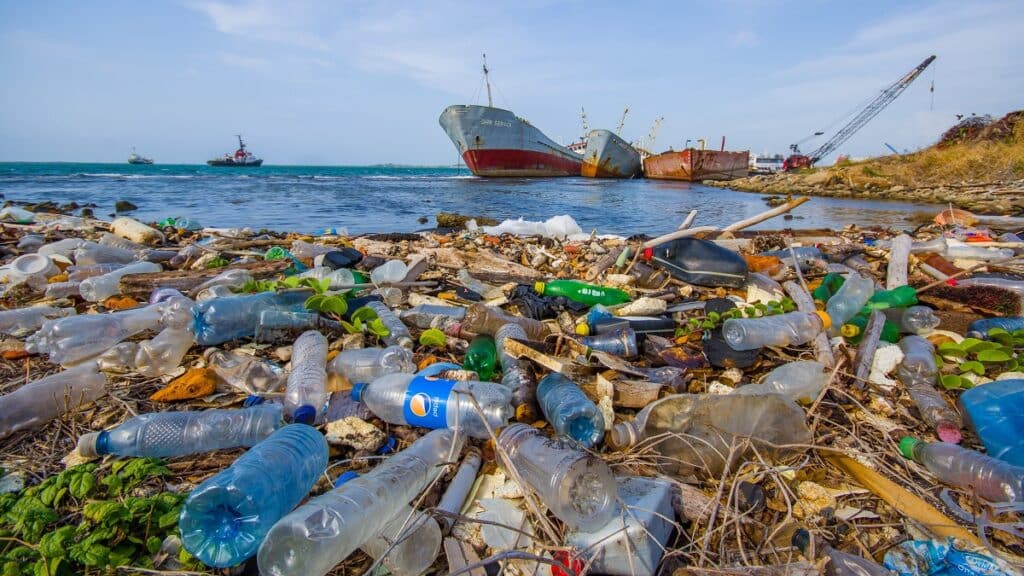
3. Africa Should Not Become Dumping Ground for Plastic Pollution
The Executive Director of Connected Advocacy, Prince Israel Orekha, has warned developed countries to refrain from turning Africa into a dumping ground for plastic pollution. Orekha disclosed this in an interaction with RealNews Magazine on the outcome of the fourth session of the Intergovernmental Negotiating Committee to develop an international legally binding instrument on plastic pollution, including in the marine environment (INC-4), which concluded on April 29 in Ottawa, Canada.
Orekha said that African Civil Society Organizations (CSOs) were united in demanding a strong plastic treaty that would end global plastic pollution. “As CSOs, we demand that a robust plastic treaty is developed from this meeting, and Africa should no longer become a dumping site for plastic pollution.
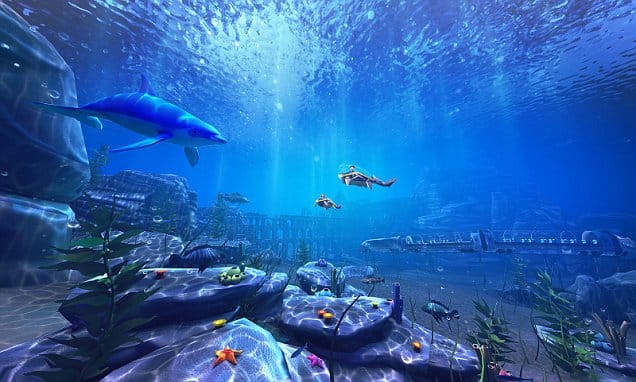
4. New Virtual Reality Tool Created by Students Brings the Oceans to the Prairies
CANADA – Kristin Moskalyk and Nicole Lamoureux, two University of Saskatchewan graduate students, had to find a way to teach about one of the United Nations (UN) Sustainable Development Goals (SDG) for their Sustainability Teaching and Learning Through Design & Technology course. They chose SDG 14: Life Below Water, a goal to conserve and sustainably use the oceans, seas, and marine resources.
Although they had no prior experience designing virtual worlds, the two former teachers wanted to find a way to develop empathy and support for SDG 14 from people in landlocked provinces. After finishing their project, their professor encouraged them to apply for the Metaverse for Sustainable Development Goals Global Prize and Virtual Reality Competition. Their team was among the 15 winning teams selected from 257 teams from 70 countries. They earned a level two finalist prize of $10,000.
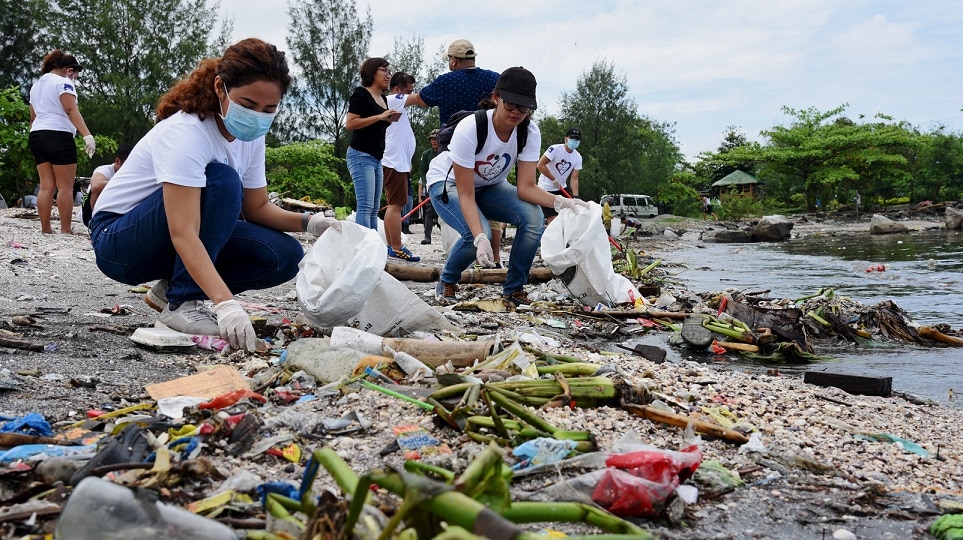
5. Single-Use Plastics Ban Is the Way to Solve the Philippines Crisis
MANILA, Philippines—2019 Filipinos consumed 163 million sachets, 48 million shopping bags, 45 million thin film bags, and 3 million diapers daily. The problem is that most of this plastic waste ends up in landfills and bodies of water because of the proliferation of single-use plastics and a fragile waste management system.
And so, though efforts to recycle plastic waste in the Philippines are numerous, scaling them up to become national programmes is a challenge. But if they succeed in taking multiple measures, including banning single-use plastics, the country could play a significant role in the global fight against plastic pollution. Many believe a cap on plastic production will prevent biodiversity loss and limit global warming to 1.5 degrees Celsius.
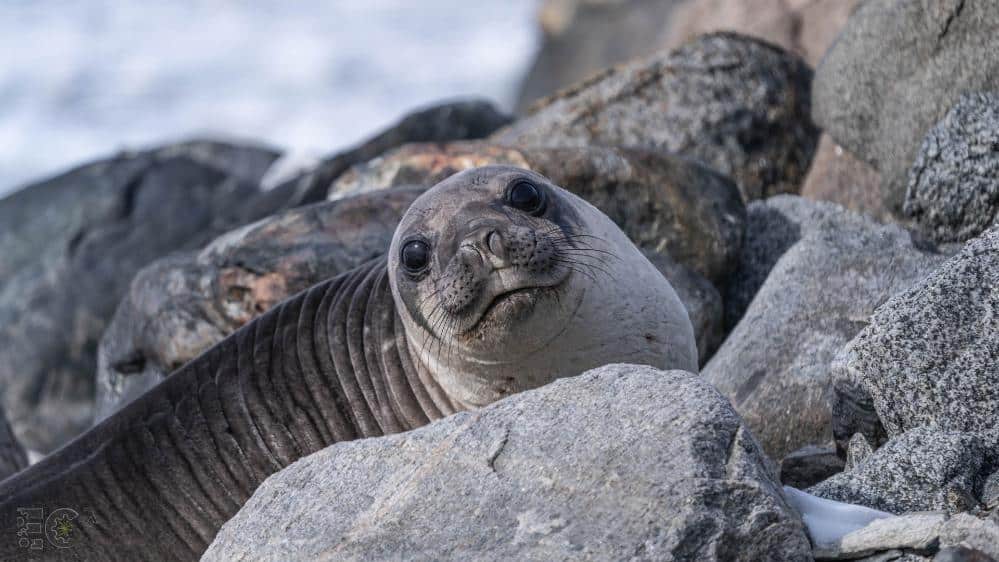
6. Ozone Depletion Brings New Threat to Antarctic
Ozone depletion over Antarctica has typically peaked in September and October, but recently, it has remained depleted through December, which is the summer. The start of summer is peak breeding season for penguins and seals, and extreme UV exposure comes at a vulnerable time in their lifecycle. An increase in UV radiation in early summer could be particularly damaging to young penguin chicks and seal pups who are on the ice in late spring.
Since the Montreal Protocol was established in 1987, phasing out the global use of ozone-depleting chemicals, many have assumed that the ozone layer is repaired. The best way to protect animals in the Southern Ocean is to keep global heating as low as possible so that we keep as much sea ice as possible. The best thing that we can do is to take action on climate change by reducing carbon emissions.
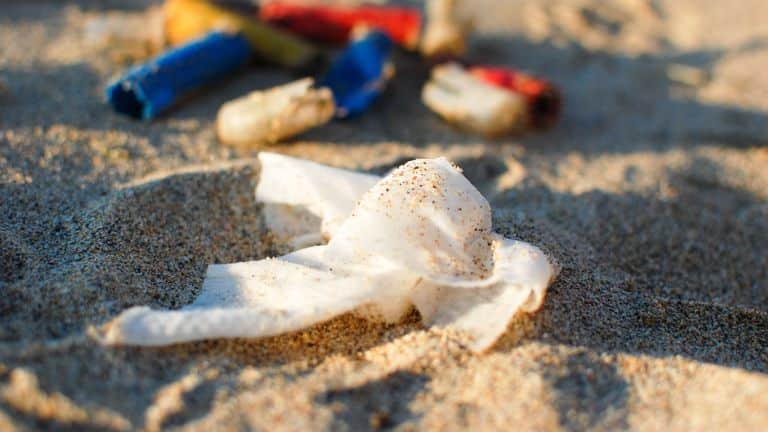
7. Wet Wipes Containing Plastic Set To Be Banned From Sale in UK
UK—Legislation expected to be confirmed on Monday would make selling or supplying wet wipes containing plastic illegal in England, with the rest of the UK set to follow by the autumn. Labour has said the plans do not go far enough and has urged a “full ban on the sale, supply, and manufacture of plastic wet wipes.” Wet wipes eventually break down into microplastics, which damage ecosystems and contribute to water pollution, and discarded wipes have increasingly littered Britain’s beaches.
Campaigners welcomed Monday’s proposals but urged the Government to go further. Jane Martin, chief executive of City To Sea, said: “The Government should now look to tackle all single-use plastic products through further bans and mandated reuse and refill targets.” Parliament’s summer recess begins on 23 July, with the legislation expected to be introduced before then.
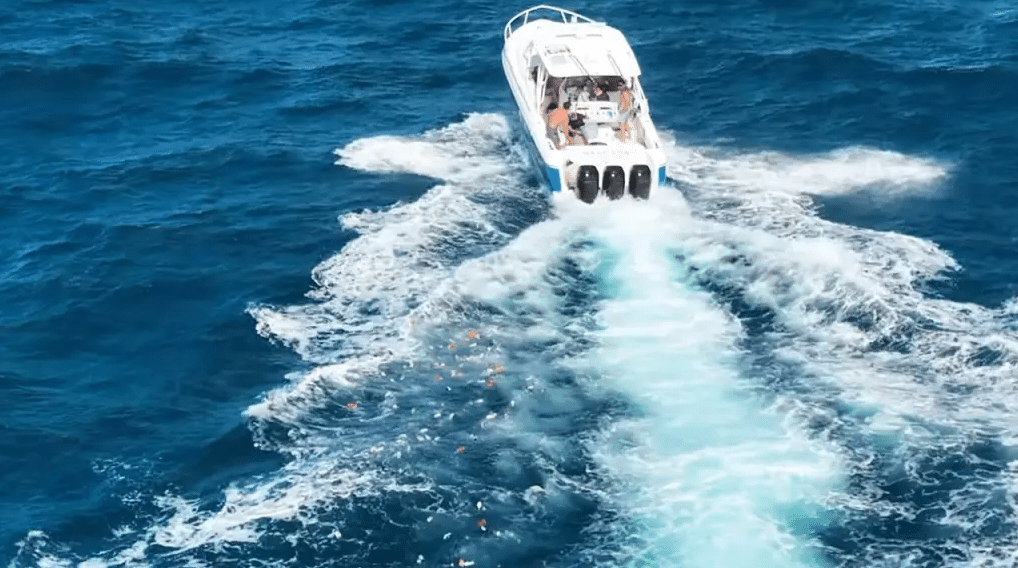
8. Boaters Dumping Trash in Florida’s Waters? Teens Face Felony Charges
Two teen boaters face felony pollution charges after being caught on video dumping trash into the Atlantic Ocean during a South Florida boating party. Because they are minors – 16 and 15 years old – they are not being named. According to the arrest reports, a drone video shows them dumping plastic water bottles, cans, food bags, plastic cups, and other trash. The teens eventually turned themselves in around a week after the incident happened.
Both are charged with causing pollution “to harm or injure human health or welfare, animal, plant or aquatic life or property,” according to their arrest reports. FWC Chairman Rodney Barreto reiterated in a statement that “callous disregard for Florida’s environment will not be tolerated. This is a teaching moment for all those involved — Florida’s natural resources are precious, and we should all do our part to protect them.”
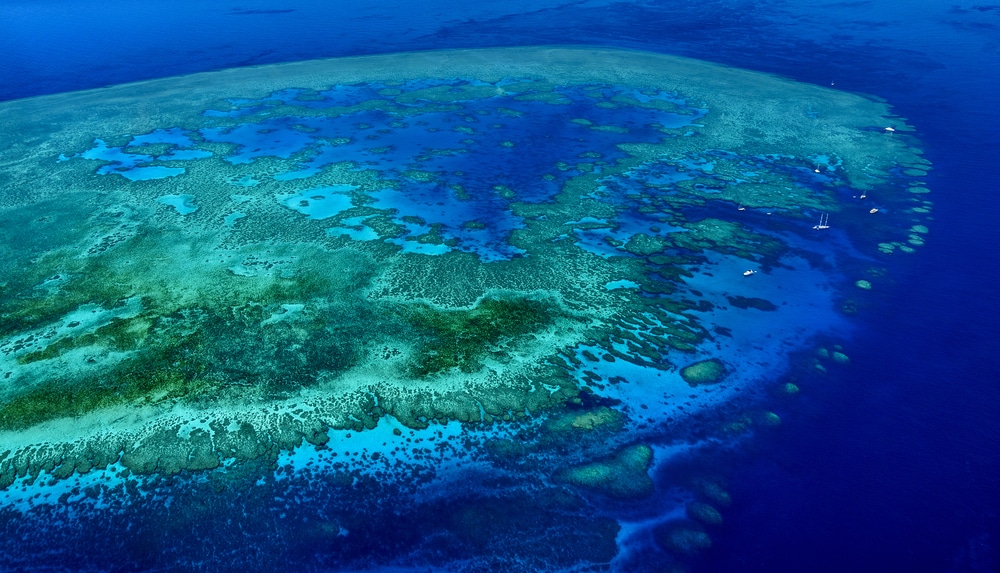
9. Calls AIS Indonesia’s Contribution and Leadership Commitment Forum, Foreign Minister Retno: Must Produce Innovative Solutions
JAKARTA, Indonesian – Hosted The Archipelagic and Island States (AIS) Forum, a platform designed to include island states and archipelagic countries regardless of their region, size, and development level. A global initiative that brings together 51 archipelagic and island nations to participate in a collective forum addressing challenges of ocean resource usage for sustainable economic growth, climate change resiliency, ocean pollution, emergency management, and the enhancement of sustainable fisheries.
In its opening, Foreign Minister Retno stressed the importance of solidarity amid challenging world conditions to overcome common challenges. “I convey that the AIS Forum must be a forum that produces innovative solutions and ensures sustainable seas.” “We know that an inclusive forum is focused on finding innovative solutions to these various global challenges and on encouraging the achievement of SDGs, especially SDG 14, which is related to the sea,” he said.
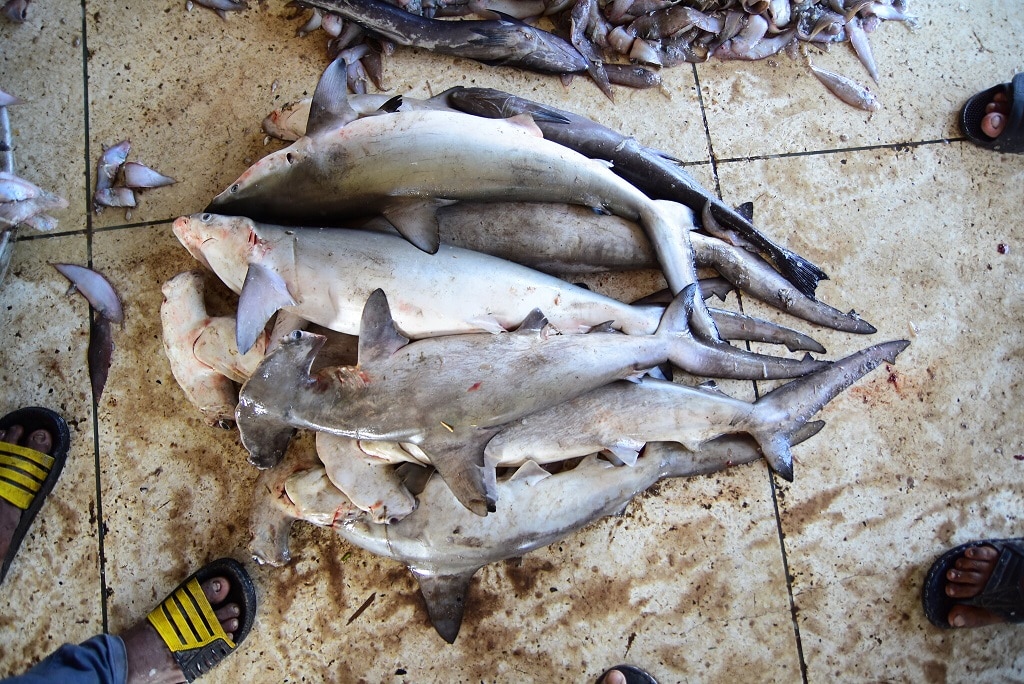
10. FFOS Wants Legislation to Protect Sharks
BUCCO, Tobago. Fishermen and Friends of the Sea (FFOS) called for legislation to protect sharks in local waters in response to a sizable shark kill in Buccoo. A $10,000 reward was offered for capturing a shark involved in a recent attack on a tourist. However, the Tobago House of Assembly (THA) retracted the offer almost immediately. The FFOS wants to develop science-based management strategies that prioritize shark conservation while addressing public safety concerns.
The need for more legislation and public education on sharks’ ecological significance and role in maintaining healthy marine ecosystems contributes to the issue. The FFOS is also calling for the Environmental Management Authority (EMA) to be held responsible for a construction incident at Turtle Beach that destroyed leatherback turtle nests, threatening Tobago’s tourism, environment, and a particularly rare species.
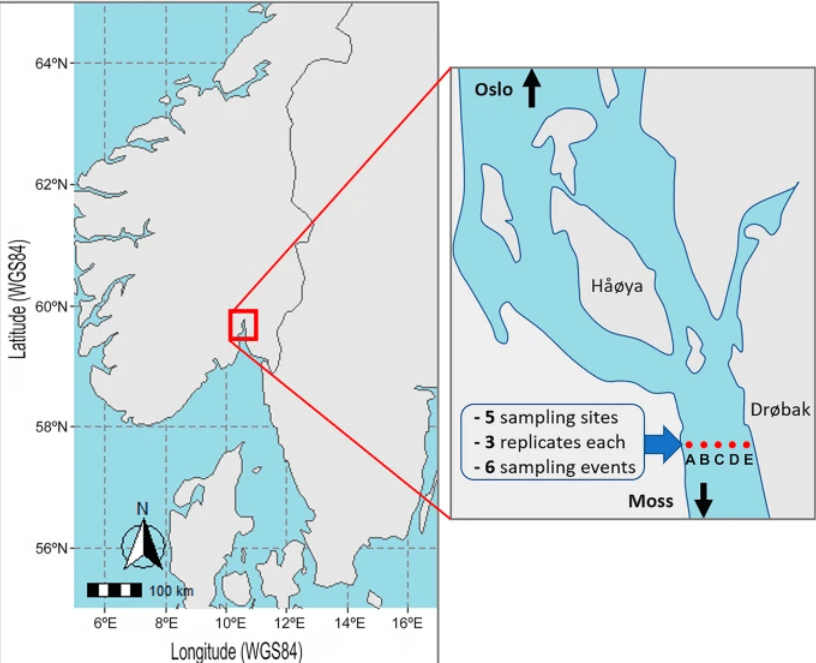
11. Using eDNA Metabarcoding to Understand Fish Biodiversity and Seasonal Patterns in the Oslo Fjord
In the face of global ecosystem changes driven by anthropogenic activities, effective biomonitoring strategies are crucial for mitigating impacts on vulnerable aquatic habitats. Time series analysis underscores a great significance in understanding the dynamic nature of marine ecosystems, especially amidst climate change disrupting established seasonal patterns. Focusing on Norway’s Oslo fjord, our research used eDNA-based monitoring for a one-year temporal analysis of aquatic biodiversity. To increase the robustness of the study, a taxonomic assignment comparing BLAST+ and SINTAX approaches was done.
Our study detected 63 unique fish species, including several commercially important species. Seasonal dynamics for certain species exhibit clear patterns, emphasizing the method’s utility in unraveling ecological complexities. eDNA metabarcoding emerges as a cost-effective tool with considerable potential for fish community monitoring for conservation purposes in dynamic marine environments like the Oslo fjord, contributing valuable insights for informed management strategies.
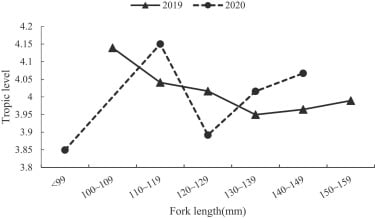
12. Combined Stomach Contents and Stable Isotope Analysis Reveal Feeding Habits of Japanese Jack Mackerel in the East China Sea
Japanese jack mackerel (Trachurus japonicus) is an economically important fish in the East China Sea. Knowledge of the feeding habits of this species in this area still needs to be improved. Based on bottom trawl surveys conducted in the southern coastal region of Zhejiang during August 2019 and 2020, we analyzed the feeding ecology of T. japonicus using stomach contents analysis and the stable isotope approach. Based on stomach contents analysis, the main food groups identified for T. japonicus were fish, shrimp, crabs, cephalopods, and small crustaceans.
The results obtained by stable isotope analysis showed that the nutrient contribution rate of small crustaceans to the diet of T. japonicus was highest in both years, followed by shrimp. The feeding habits of T. japonicus had obvious ontogenetic variations, and the average contribution of fish species increased as the predator’s size increased.
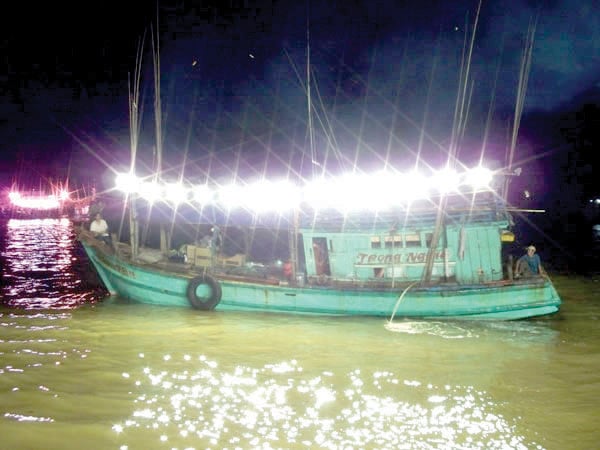
13. LED Lights Have Darkened the Future of Goan Fisherfolk
BENAULIM, India: There is simmering discontent off the shores of Goa as traditional fishermen have raised vociferous opposition to the deployment of powerful LED lights by trawler boats. The bone of contention is that larger trawlers use excessive LED lights to attract entire shoals of fish toward the water’s surface at night. Traditional fishermen, employing more sustainable pole and line methods, claim this practice disrupts the ecological balance and jeopardizes their livelihoods.
Despite repeated appeals to the State Fisheries Department, the Union Fisheries Ministry, and even petitions before the High Court, the fishing groups allege that large-scale trawlers brazenly deploy unabated LED lights. State Fisheries officials and coastal police maintain they are actively enforcing regulations and impounding errant vessels. However, the traditional fishermen’s unions allege this problem persists despite a ban on LED lighting for fishing activities.
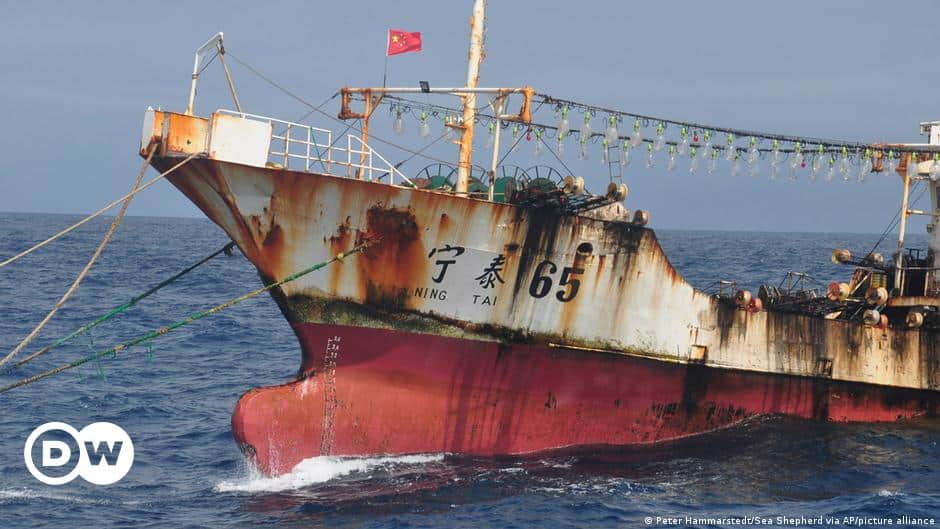
14. Chinese Fishing Fleets in Indian Ocean Accused of Abuses
A recent investigation has revealed evidence that China’s distant-water fishing fleet, the world’s most enormous in scale, commits environmental and labor abuses in the southwest Indian Ocean off the coast of East Africa. “There was no such word as ‘rest’ on Chinese fishing vessels,” explained a former crew member to a group of investigators from the Environmental Justice Foundation (EJF), a London-based NGO. “If there were a lot of fish, the work could be up to 22 hours long.”
The testimony was part of a recently released report by the EJF accusing China’s fishing fleets of environmental and human rights abuses in the southwestern Indian Ocean. As a leading fishing nation, China’s distant water fishing (DWF) industry is the world’s largest catch volume and fleet size. According to the Illegal, Unreported, and Unregulated Fishing Index, China ranks as the worst offender among 152 countries worldwide.
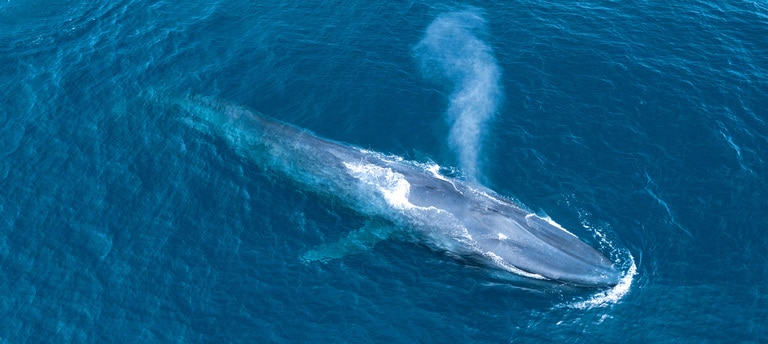
15. Listening to Giants – the Search for the Elusive Antarctic Blue Whale
Blue whales are the largest animals on earth, measuring up to 30 meters long and weighing up to 200 tonnes. Yet it’s the sound they make, not their size, which gives their location away. The marine mammal research team from the Department of Climate Change, Energy, Environment and Water’s Australian Antarctic Division and their international colleagues have released a comprehensive snapshot of blue whales in Antarctica based on acoustic data.
The data showed that Antarctic blue whales are distributed around Antarctica and through the sub-Antarctic during summer. For almost two decades, the team has used free-floating ‘sonobuoys’ as ‘listening stations’ to detect, track, and record Antarctic blue whale and other whale sounds. Spending more than eight months at sea on seven voyages, they have traveled more than 145,510 kilometers and monitored nearly 3900 hours of sound from listening stations around Antarctica.
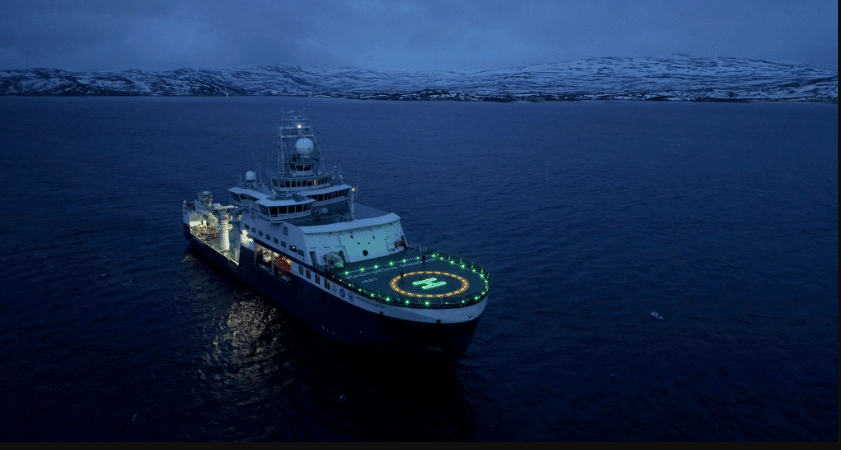
16. Into the ABYSS Brit Boffins Taking Part in First Mission to Arctic Sea’s Deepest Point Using £5m Underwater Vehicle
British scientists are participating in the first mission to the Arctic Sea’s deepest point — 3½ miles below the surface. The experts were part of a team that had left Norway yesterday to explore the abyss between Greenland and Svalbard. They will use a £5.15million, remotely operated underwater vehicle to film the seabed — which is as deep as Kilimanjaro is high — and take samples. It is hoped they will discover thousands of new species.
Through collaborative efforts and cutting-edge technology, they strive to shed light on the undiscovered life thriving in the Arctic depths, paving the way for a deeper understanding of our planet’s precious ecosystems. Some unique seabed habitats are being targeted for deep-sea mining and have become a stage for international conflict. Delving into some of Earth’s most extreme and uncharted habitats is a rare opportunity.
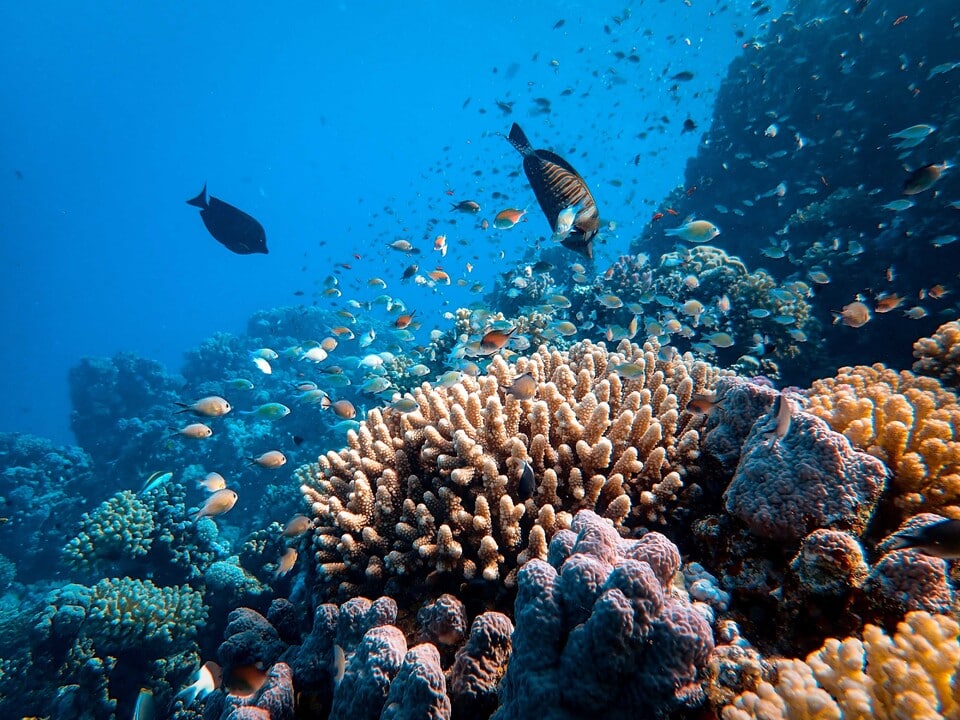
17. Conservation Tech Firm, Bloomberg Ocean Initiative Launch Tool to Monitor Marine Biodiversity Protection
A non-profit tech company and the Bloomberg Ocean Initiative have launched an open-source tool to track progress in sea conservation worldwide. They presented it during the ongoing ocean conference in Athens, Greece. Built by SkyTruth with support from the Bloomberg Ocean Initiative, the “30×30 Progress Tracker” is the first free, public, interactive platform designed for the general public to see — at a glance — how well the world is doing on enhancing ocean protection globally in line to protect 30% of the ocean by 2030 (“30×30”).
The platform can be used by civil society campaigns to track country-by-country progress and by government agencies and policymakers to gain insights on 30×30 and compare countries’ progress. The goal is to make information about 30×30 more accessible and transparent to everyone, including those in local communities directly impacted by this ambitious conservation effort.
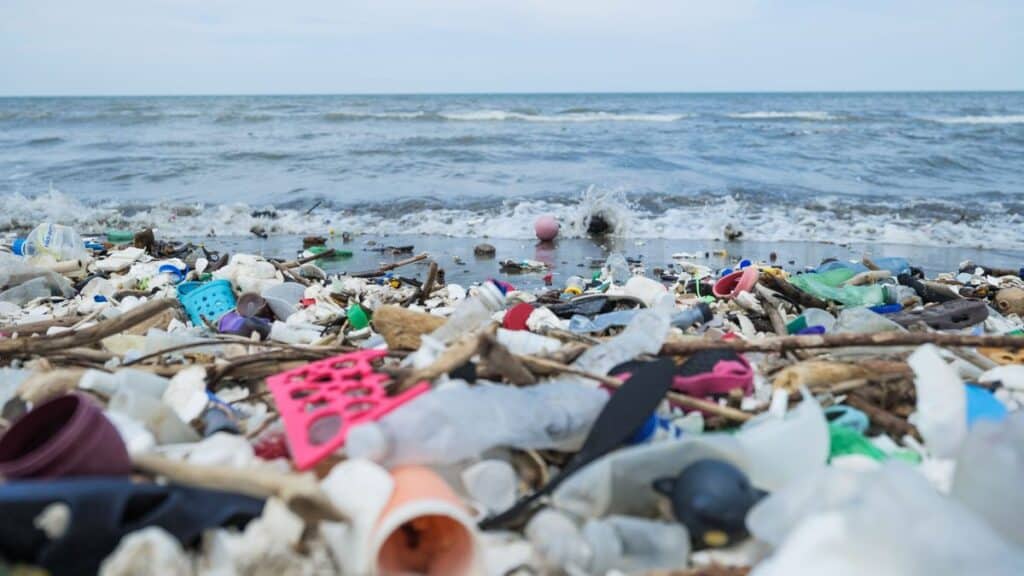
18. Rwanda: Govt Calls on Legal Experts to Support Global Treaties on Plastic Waste
The Minister of Environment, Jeanne d’Arc Mujawamariya, has urged environmental legal experts in Central Africa to familiarise themselves with key international environmental agreements and their implications at the national level. In an event to be closed on Friday, May 3, legal professionals from Central Africa gathered to discuss the significance of international agreements on the environment and climate change. The event highlighted the importance of legal expertise in facilitating negotiations and understanding the complexities of the global accords.
Among the international agreements discussed were the Paris Agreement, which aims to limit global warming to 1.5 degrees Celsius; the Kigali Amendment to the Montreal Protocol for reducing hydrofluorocarbons (HFCs); the Convention on Biological Diversity (CBD); the United Nations Convention to Combat Desertification; and the United Nations Framework Convention on Climate Change (UNFCCC).
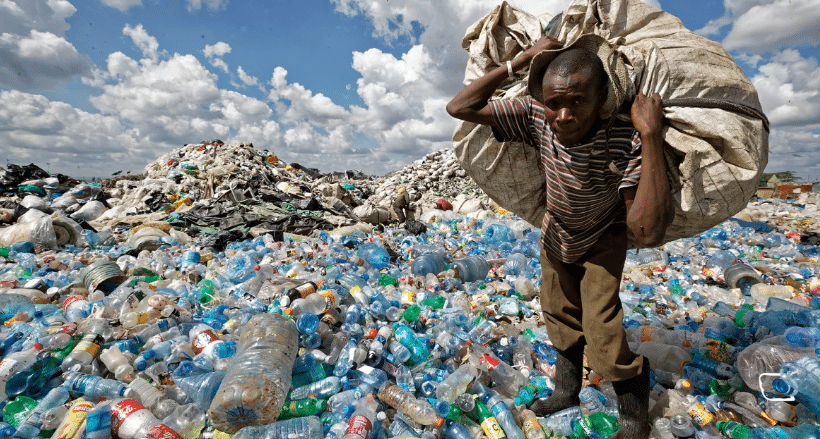
19. Can World Leaders Agree on a Treaty to End Plastic Pollution?
This week, UN Member States from 176 nations wrapped up their fourth session in Ottawa, Canada, as part of a years-long negotiations to produce the first legally binding agreement to reduce plastic waste. While many agree that progress has been made to reach a consensus by the end of the year, environmentalists argue that tougher restrictions on plastic production are needed to reverse a dangerous trend.
Are you tired of reading? Are you a Visual/Auditory receiver of information? This is your Lucky Day! A two-minute, 21-second (2:21) video provides a synopsis of the issue. Click the link!
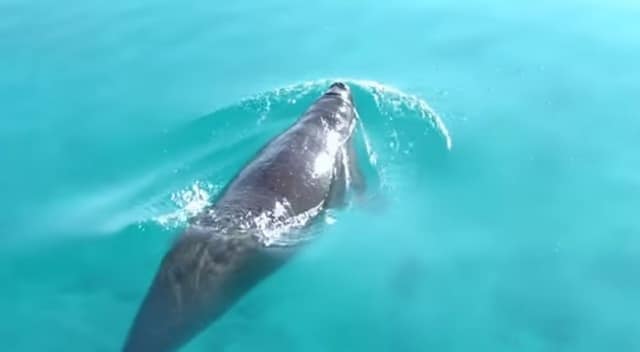
20. Dugong Survey Ongoing at Seychelles’ Aldabra Atoll Using Drones
VICTORIA, Seychelles — Dugongs are sometimes called sea cows, a very appropriate name for these gentle creatures, which maintain their hefty bodies with a healthy diet of seagrass. In the past, they were the usual prey of early settlers and hunters, who hungered after their meat and oil. Today, that has changed, and their species is protected under Seychelles law. To better observe the dugongs, the first-ever lagoon-wide drone survey of the waters around the Aldabra Atoll using drones has begun.
Implemented by the Seychelles Islands Foundation, the project aims to gather information on the dugong population estimate and provide valuable insights to guide government authorities and regional conservation managers to strengthen dugong conservation efforts. Aldabra is where you’ll find the only known remaining population of dugongs in Seychelles. Though protected, they are a threatened species, so this project is important.
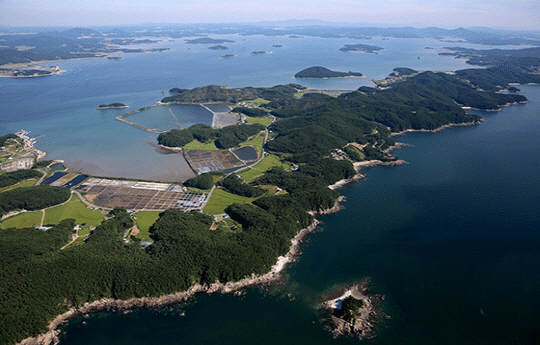
21. Final Decision to Create a National Marine Ecological Park in South Korea Due Soon
South Chungcheong Province, Republic of Korea — The Garorim Bay National Marine Ecological Park Creation Project is being re-examined by the Korea Development Institute (KDI). The final results are expected to be announced in early June. Expectations are high for the feasibility of the Garorim Bay National Marine Ecological Park project, which will be Chungnam’s long-cherished project and the first step in preserving the national marine ecosystem.
Garorimman Bay is one of the world’s five largest tidal flats and the most significant and first marine life protection zone in Korea, with excellent environmental value. More than 402 aquatic species, including the Spotted Seal, Natural Monument No. 331, and Endangered Wildlife Class II, live in a variety of marine life, including the protected red-footed horse dinghy, rooster bird, and white-footed dog.
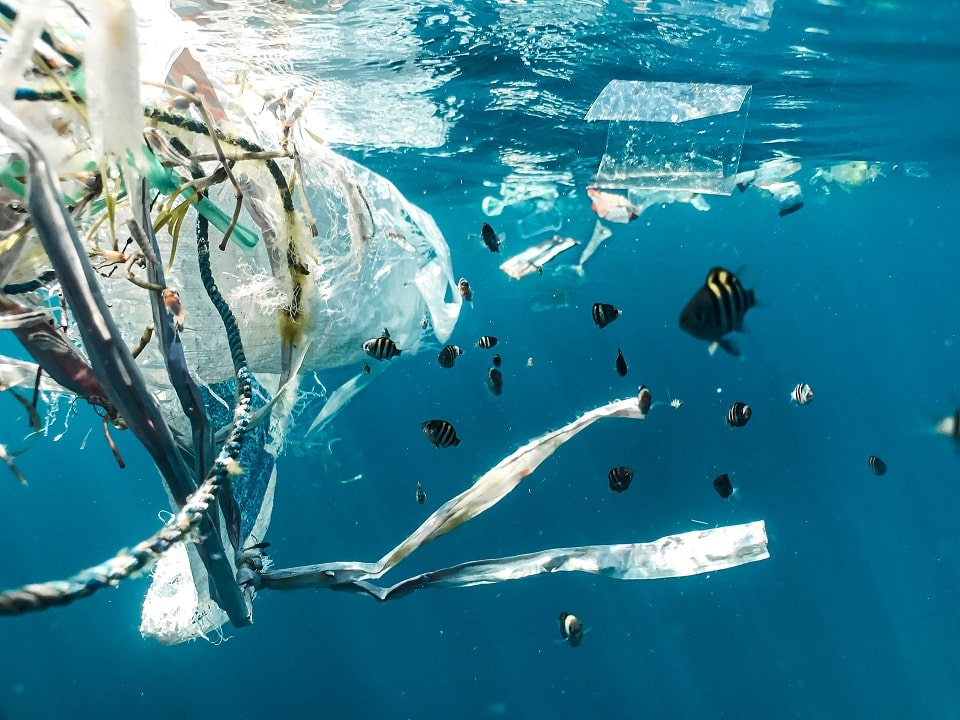
22. Canadian Government Admits Lack of Data on Plastic Pollution Despite Millions Budgeted for Elimination
A federal report revealed that the Liberal government lacks comprehensive data on the extent of plastic pollution in the country despite allocating millions of dollars toward its eradication, says Blacklock’s Reporter. The report underscores the challenges in addressing plastic waste, especially as in-house research indicates that many Canadians do not view it as a significant environmental concern. The report highlighted that although the government has budgeted $279 million to eliminate plastic waste, estimated at four tonnes annually, it lacks precise data on plastic pollution levels.
A 2019 study concluded that about one percent of Canada’s plastic water in 2016 entered the environment as pollution, but it did not include plastic pollution from aquatic-based sources. Despite government initiatives aiming for “zero plastic waste,” the targets only focus on reducing plastic waste and do not measure progress toward the ultimate goal of zero plastic waste.
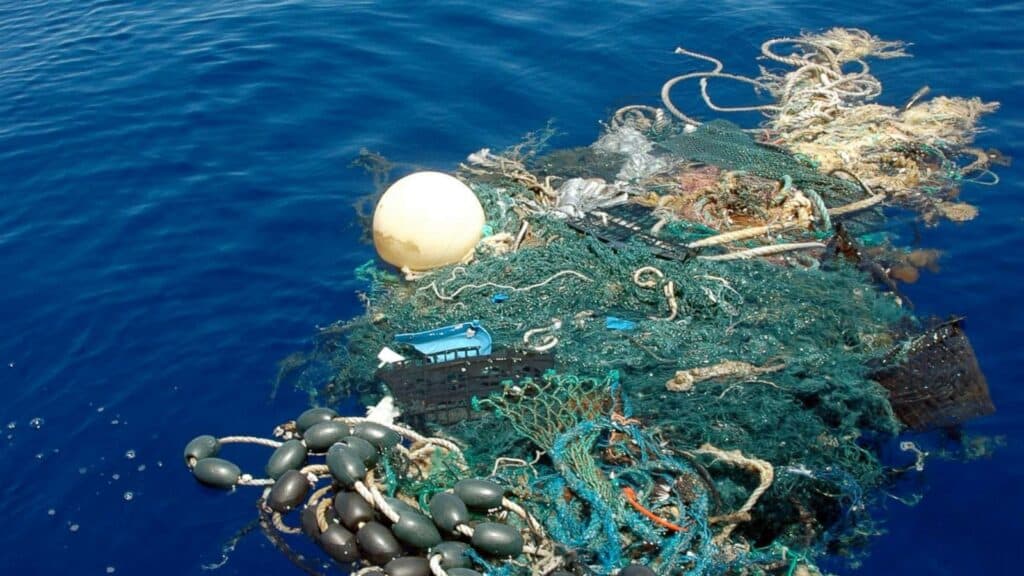
23. ‘Companies Slow in Complying With Law on Waste Disposal’
PHILIPPINES. With only 900 of 4,000 obligated companies having complied, a lawmaker reiterated the urgency of the Department of Environment and Natural Resources (DENR) enforcing the Extended Producer Responsibility (EPR) Law of 2022 to guarantee the proper disposal and recycling of plastic waste by major corporations. While lauding the Marcos administration’s recent partnership with the World Economic Forum (WEF) on mobilizing communities behind the protection of the blue carbon ecosystem and the reduction of plastic pollution, Camarines Sur Rep. Luis Raymund Villafuerte believes that these efforts should be accompanied by strict enforcement of the EPR Law.
“The EPR Law will mean nothing in our country’s green quest for a circular economy unless the DENR implements it more stringently to increase compliance with its mandate for them to sign up, committing to a sustainable way of disposing of their waste, especially single-use plastics,” Villafuerte said.




